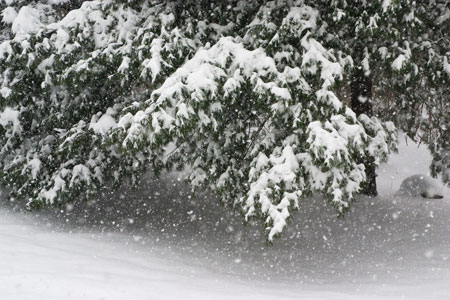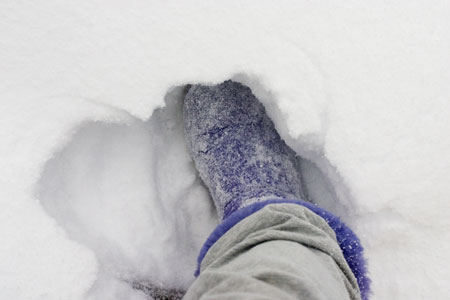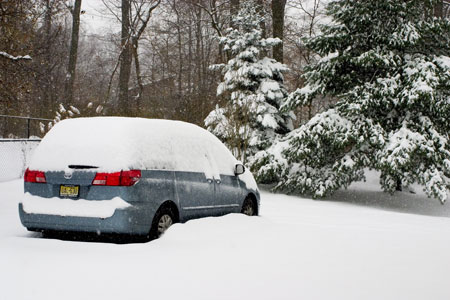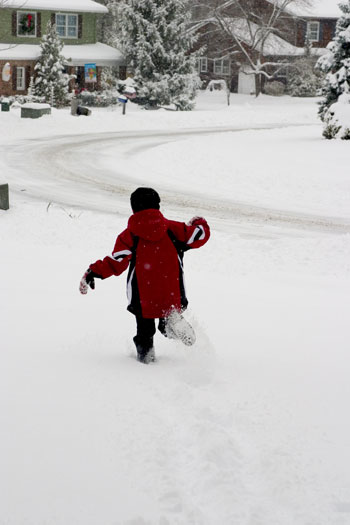The first time I saw him this fall, my stomach fluttered and turned over. My head hurt, a throbbing behind my eyes. I wanted to turn around, turn away and go somewhere else, not there, not after all.
As I rode the commuter train into Manhattan, I tried to picture his face. Tried to picture what we could possibly say to each other. What he would look like. What it would feel like.
As I walked into the great gray stone building, as I gave my name to the humorless woman behind the desk, I smelled the sharp scent of disinfectant covering human pain and wondered again if I could turn around and go home.
It's not that I haven't seen him recently. Though in a way, yes, it's that. I saw him once. In late June. I was with Dan and Damian, my backup, my moral support. Divide the weight, make it easier. That was at a different rehab center, a different configuration. And that too was difficult.
Before that, it had been three years. A disaster of a lunch, a conflagration of a phone call, a bitter but ultimately healing time of estrangement. Healing for me, that is. Necessary, maybe. If you love someone and he's hurt you again and yet again until your love is mingled with hate in equal measure, until all your internal ghosts revolve around that pain, sometimes the best thing you can do is shut the door. Walk away. Leave him be.
And yet. I wasn't, was I? Because here I was. Walking down the hall, passing a sign that read "Subacute Care." Knowing what I'd see. Not knowing how to feel.
I got the first call in late May. His wife. Apparently he'd fallen, broken bones, which were soon compounded by complications of a life lived with too little care to the body, with unwise medical decisions, with a cerebral disregard for mortality. Not my story to tell, not now.
So I called him. Fingers sticky on the phone, pulse leaping in my throat. But it was fine. He sounded like himself, his voice blurred but deep and, more importantly, friendly. The father I might have wanted, the father I thought I had at one point in my twenties, when his hot-and-cold parenting turned warm for a span of years. And so we went to visit him when we came east in June. Sitting in his wheelchair by the window. So frail, so skinny. So rapidly, transformingly old. But he was going home in a few weeks, back to his apartment, back to his wife and his life. He would walk down the apartment building hall to build his strength, he would go into work after a few weeks. He would keep going, the Energizer bunny of doctors, a wind-up rag doll with an indomitable will. Would we see him after we moved? Would it be okay? How soon would it explode into harsh anger and coldness? And did that matter anymore?
In September, I got an email from his best friend. His only friend now, he's alienated everyone else. We were in Cleveland, the last stop of our long drive east. I sat at my aunt's computer and read the words on the unfamiliar PC screen. "Your father fell. He fractured the second vertebra in his spine. He's in the hospital. He asked me to tell you."
The first time I visited after we moved here, I didn't know why I was there. Visiting this man. In his bed in the rehab center. It was hot. Indian summer, and the heat clung to the walls of this ammonia-scented building. I saw a woman wheeled by in a stretcher. I saw two men in wheelchairs sitting in the foyer, shouting hellos to everyone who went by. I saw my father.
Do you know what they do when you break your neck? They put you in a halo. It's solid black metal, cushioned around the neck with a sheepskin collar. It extends around the head. Two arms reach inside the structure to secure it to your forehead. Two metal prongs extend out from within this metal prison, this immobile spiderweb.
My father seemed dwarfed by the contraption. His arms so skinny, the hospital gown slipping off his bony shoulders. He had to fish for the Dixie cup on his bedside tray, he couldn’t turn his head to look. Infantilized. So I leaned in to kiss the tiny swath of ashen cheek I could reach and then sat, positioning my chair carefully within his narrow field of vision. And talked, mining my life for interestingness. Damian's in school, yes, it's a good one. He got 100% on his first math test, yes, he's bright. Dan's making good contacts, yes, he should find work soon. We like our little carriage house, yes, and we had no trouble selling our LA house. Montclair's a sweet town, yes. I'm starting to build my own freelance career, yes, finally it's time.
Eventually I ran out of things to say but kept trying anyway. Saying the same things again, sometimes, because it doesn't matter, really. Doesn’t matter what you say. Only that you're there. At the end, I clasped his hand, his long fingers, bony joints, warm dry palm. And I left the room, left the building, walked down the street to the subway. Walked away.
I can move. I can walk, I can eat whatever I want (within reason). I can shovel snow. I can work in my body, move freely. I have friends, more than one. I have family, many people I love and who love me in return. My life seems rich in luxury.
I've been back, every week or two I go back if I can. It's not always easy, Dan's working around the clock right now and Damian, after a couple of visits, expressed his discomfort with the environment. And I don't blame him. A seven year old shouldn't be subjected too many times to that dead, cold, sad place.
As for me? Well, I've come to realize it doesn't matter what I think about this man. Or rather, what I thought about him. It goes beyond that. A friend said to me, "You don't have to go, you know. You don't have to do this, given everything he's put you through." And she's right. I know she is. But I have to. Not because he's my father. Or rather, yes, because of that. Because he's my kin, because underneath it all I do care, because we have this long, complicated relationship. But also because none of that matters, because he's very alone right now, vulnerable right now. Because I have to. Because if I walked away, I would be a different person. Someone I don't like.
Sometimes it's not about how you feel. Not about what's right for you. Just about what's right.




